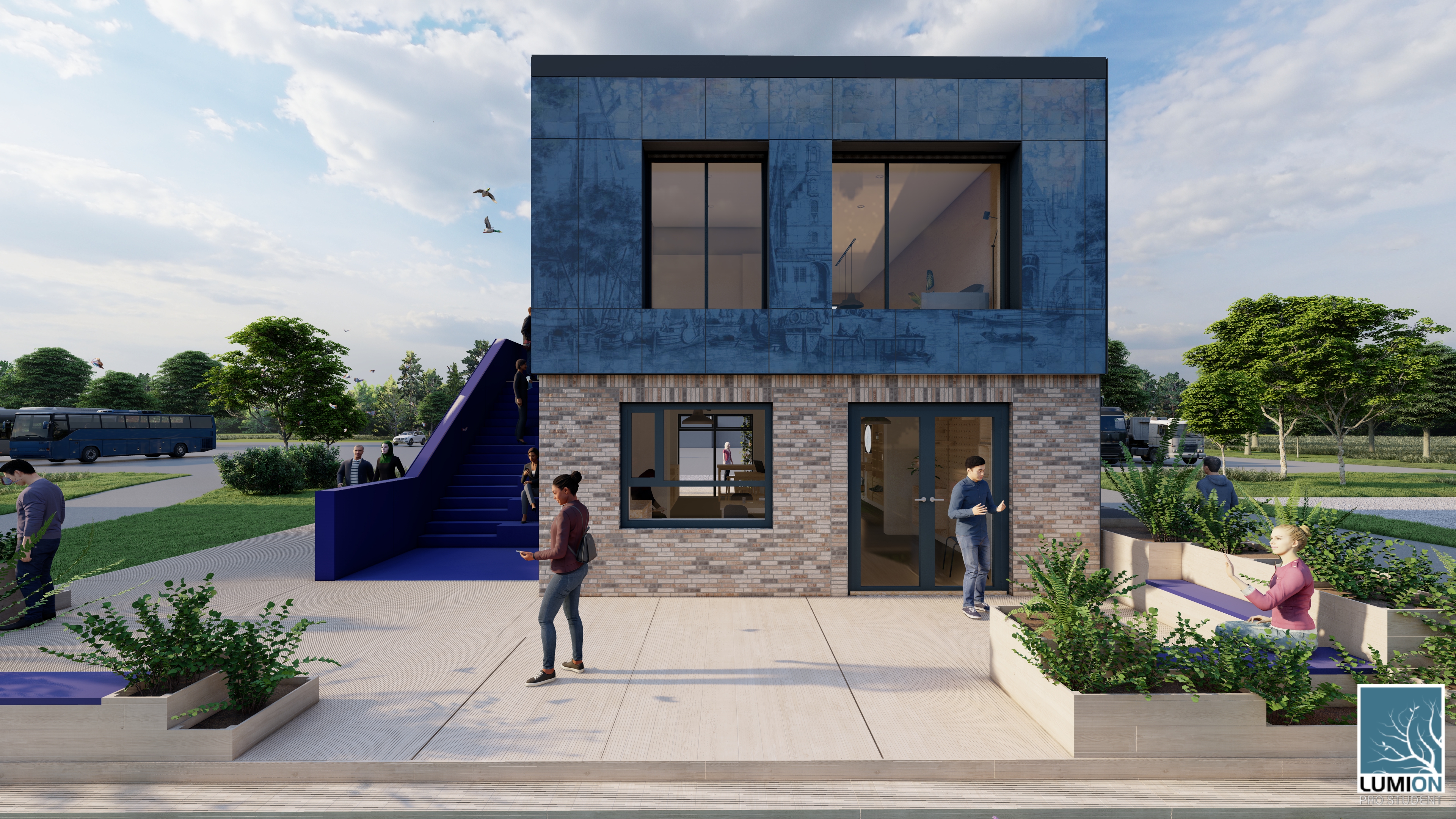Delft students develop solution to improve the sustainability of 847,000 old flats
Many of the older ‘portiekflats’ (blocks of flats with a shared access stairwell) that are common throughout the Netherlands consume a vast amount of energy and therefore often end up being demolished. However, this type of flat does not necessarily have to disappear from the streetscape. Symbiotic Urban Movement (SUM) – a team of students from TU Delft – devised a plan to sustainably transform all 847,000 portiekflats in the Netherlands and to create more homes.
Kill two birds with one stone
SUM aims to transform these flats by adding an ‘energy-positive top structure’: a module that not only creates two new levels of additional housing, but also makes the building energy-neutral. This solution represents a significant contribution to the dual challenge of building one million new homes in ten years and of improving the sustainability of a significant proportion of the existing housing stock. The prototype that has been developed for the sustainable portiekflat was unveiled on Friday 11 March in The Green Village in Delft.
Sustainable solution for old housing stock
In 2019, more than fifty students from TU Delft took on the challenge to develop a solution-oriented design for old residential buildings in the Netherlands, focusing as much as possible on circularity and energy efficiency. They came up with a three-component building design for the typical Dutch portiekflat: a commercial plinth, a dwelling and the circulation core. A new module will be erected on top of the block of flats, acting as a kind of battery and supplying the old building with solar energy and rainwater. But that’s not all: SUM’s design also addresses the renovation of the existing building – it will receive a new, well-insulated façade to house the pipework for all the installations. In addition, the plan aims to help improve social cohesion: the ground floor of the building will be transformed into a communal public space with a café, shops, a restaurant and workshops.
Dutch entry at Solar Decathlon Europe
The SUM student team hopes that their innovative and sustainable design will score highly at this year's Solar Decathlon Europe competition in Wuppertal, Germany. The aim of this competition is to develop innovative solutions to address technical, architectural and social challenges faced by cities. More and more people are living in urban areas, and the demand for living space and resources is on the rise. The competition therefore aims to modernise the building stock and the design of urban environments.
More information
Following the unveiling on 11 March, the SUM prototype will be open to visitors at The Green Village in Delft.
For more information, visit the SUM project website: SUM - TU Delft - Solar Decathlon Europe Competition

